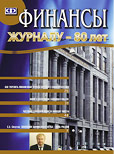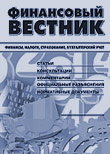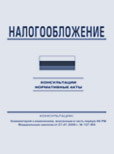Содержание
НАЛОГИ: ТЕОРИЯ И ПРАКТИКА
В.Г. Пансков, профессор-исследователь кафедры налогов и налогового администрирования Финансового университета при Правительстве Российской Федерации, заслуженный экономист Российской Федерации, государственный советник налоговой службы I ранга, доктор экономических наук, профессор
E-mail: 5868116@mail.ru
Статья посвящена детальному разбору предварительных итогов эксперимента по внедрению специального налогового режима «Налог на профессиональный доход». В результате проведенного анализа установлена его недостаточно высокая эффективность с позиции сокращения занятости самозанятых в теневом секторе экономики и пополнения доходной базы бюджетной системы страны. Отмечаются также некоторые проблемные вопросы функционирования данного специального налогового режима. С учетом этого делается вывод о необходимости трансформации налога на профессиональный доход и высказываются соответствующие рекомендации по направлениям ее проведения.
Ключевые слова: доходы бюджета, легализация, налог на профессиональный доход, результаты эксперимента, самозанятые, специальный налоговый режим, теневая экономика, трансформация.
Л.Ш. Юлгушева, доцент кафедры государственных и муниципальных финансов РЭУ им. Г.В. Плеханова, руководитель практики по оказанию услуг частным клиентам ФБК Legal, кандидат экономических наук
E-mail: lilia.yulgusheva@gmail.com
Автором рассмотрены вопросы, связанные с правилами налогообложения доходов в виде процентов по вкладам и остаткам на счетах в российских банках, анализируются произведенные за последние годы изменения.
Отмечая, что современный российский подход к налогообложению процентных доходов вызывает вопросы, связанные с реализацией принципов равенства и справедливости налогообложения, автор представляет предложения по совершенствованию налогообложения рассматриваемых доходов, в том числе предлагает рассмотреть вопрос об установлении права на налоговый вычет в отношении таких доходов и о наделении банков функцией налоговых агентов для удержания НДФЛ при выплате доходов.
Ключевые слова: доходы в виде процентов по вкладам и остаткам на счетах в российских банках, процентные доходы, НДФЛ, налоговая ставка, налоговый вычет, налоговая база, депозит, удержание НДФЛ, принцип справедливости налогообложения.
Д.В. Асеев, доцент кафедры теории права и публично-правовых дисциплин Самарского государственного экономического университета, советник государственной гражданской службы РФ 1 класса, кандидат социологических наук, доцент
E-mail: d.v.aseev@mail.ru
Статья посвящена анализу фискальных вызовов, связанных с налогообложением криптоактивов в Российской Федерации. На основе сравнительного изучения международного опыта (США, ЕС, Канада) и эволюции российского регулирования автор выявляет системные проблемы: отсутствие четкой квалификации активов, сложности определения налоговой базы, пробелы в администрировании и дисбаланс между регулированием цифровой валюты и цифровых финансовых активов (ЦФА). В работе показано, что принятый в 2024 г. закон о налогообложении цифровой валюты является лишь первым шагом, и для создания эффективной системы необходима дальнейшая детализация правил, гармонизация подходов, развитие механизмов контроля и повышение налоговой культуры. Предлагаются комплексные меры для интеграции криптоактивов в правовое поле России.
Ключевые слова: криптоактивы, цифровая валюта, налогообложение, налоговое регулирование, фискальная система, цифровые финансовые активы (ЦФА), правовой статус, налоговое администрирование, международный опыт, российское законодательство.
К 100-ЛЕТИЮ ЖУРНАЛА «ФИНАНСЫ»
E-mail: finance-journal@mail.ru
В кратком обзоре отмечено, что все годы в журнале печатались материалы, отражающие ситуацию в экономике страны, освещались важные события, анализировались проблемы и пути их решения, предлагались новации, рассматривался зарубежный опыт. Представлена информация о статьях, опубликованных в февральских номерах журнала за 1927, 1933, 1938, 1952, 2015, 2020 гг. Вопросам формирования доходной части бюджета и оптимальному расходованию бюджетных средств в журнале всегда уделялось большое внимание. Также в обзоре показано, что авторы поднимали важные вопросы финансирования народного хозяйства, теории и практики налогообложения, финансовому контролю, анализировали зарубежный опыт.
Ключевые слова: бюджет, налоговые доходы, неналоговые доходы, оптимальное расходование бюджетных средств, налогообложение, финансовый контроль.
ФИНАНСЫ И БЮДЖЕТ: ПРОБЛЕМЫ И РЕШЕНИЯ
Н.А. Истомина, профессор кафедры финансов, денежного обращения и кредита Уральского государственного экономического университета, доктор экономических наук, доцент
E-mail: istomina_na@usue.ru
Е.Б. Дворядкина, профессор кафедры региональной, муниципальной экономики и управления Уральского государственного экономического университета, доктор экономических наук, профессор
E-mail: elena.dvoryadkina@yandex.ru
Расходы бюджетов бюджетной системы РФ являются одним из значимых факторов, влияющих на уровень благосостояния населения страны, определяющих степень удовлетворения потребностей и возможность реализации прав и свобод человека. Кроме того, посредством расходов публичных бюджетов формируются предпосылки для позитивной оценки гражданами собственной жизни, положительного восприятия ситуации в стране в целом. Таким образом, современная финансовая наука может исследовать расходы бюджетов различных уровней в контексте благополучия и социального самочувствия населения. Именно этому посвящена настоящая статья. Расходы публичных бюджетов рассмотрены через призму объективного и субъективного благополучия, сделаны выводы относительно наиболее значимых инструментов бюджетной политики в части расходов, которые оказывают существенное влияние на социальное самочувствие граждан РФ.
Ключевые слова: расходы бюджетов, население, благополучие, благосостояние, социальное самочувствие, базовые потребности, уровень и качество жизни, социальные выплаты, бюджетное финансирование.
ВОПРОСЫ ТЕОРИИ ФИНАНСОВ
Е.Ф. Сысоева, заведующая кафедрой финансов и кредита Воронежского государственного университета, доктор экономических наук, профессор
E-mail: selfin@mail.ru
Г.Г. Чигарев, доцент кафедры финансов и кредита Воронежского государственного университета, кандидат исторических наук
E-mail: gchigarev57@gmail.com
В данной статье рассматриваются методологические подходы к исследованию финансов как научной экономической категории с применением критического анализа их отсутствия или неадекватного присутствия в трактовках данной категории представителей отечественной науки. Авторы статьи ставят перед собой цель определенным образом кристаллизовать и актуализировать методологические подходы к трактовке понятия «финансы», выявить критерии ее научности и одновременно критерии оценки научной состоятельности имеющихся на данный исторический период времени противоречивых его трактовок в научной и учебной литературе. Научные результаты данного исследования заключаются не только в постановке проблемы ревизии и актуализации устоявшихся трактовок данной категории, но и в обосновании новых методологических подходов к ее содержанию с учетом постоянно расширяющегося междисциплинарного контекста научного восприятия современных экономических и общественно-политических реалий.
Ключевые слова: финансы, критерии научного знания, объективность как критерий научного знания, теоретическая и эмпирическая детерминация научных экономических категорий.
ФИНАНСОВЫЕ РЫНКИ
С.Ю. Янова, профессор кафедры банков, финансовых рынков и страхования Санкт-Петербургского государственного экономического университета, доктор экономических наук, профессор
E-mail: yanova.s@unecon.ru
Современный финансовый рынок представляет собой важную для экономики комплексную систему многочисленных активов, институтов и инструментов. Стоимостные объемы крупнейших национальных финансовых рынков превышают параметры отраслей реального сектора, что позволяет говорить о финансомике как актуальном этапе экономического развития. Наукой и практикой накоплено немало информации, позволяющей количественно и качественно анализировать финансовые рынки с системных, регуляторных, рейтинговых и иных позиций. Однако открытым остается вопрос об оценке сложности или комплексности самой рыночной финансовой системы. В национальных экономиках состав и структура имеющихся финансовых активов и инструментов значительно различаются в силу многих объективных и субъективных причин. В статье предлагается использовать специальный интегрированный индекс сложности финансового рынка, исчисляемый с помощью известного индикатора неравномерности – коэффициента Джини. Путем оценки распределения финансовых активов и используемых инструментов по группам экономических субъектов можно измерить уровень финансовой диверсификации экономики. Решая задачу оценки сложности финансового рынка, одновременно можно анализировать и уровень потенциальной финансовой уязвимости экономики при возникновении общих и секторальных шоков и кризисов.
Ключевые слова: финансиализация экономики, финансовый рынок, финансовые активы, финансовые операции, финансовые корпорации, индекс сложности экономики, индекс сложности финансового рынка, уровень неравномерности финансового рынка.
С.М. Никоноров, профессор кафедры экономики устойчивого развития и природопользования Экономического факультета МГУ имени М.В. Ломоносова, доктор экономических наук
E-mail: nico.73@mail.ru
Р.Н. Ефрем, аспирант кафедры государственного и муниципального управления и региональной экономики Экономического факультета Чувашского государственного университета имени И.Н. Ульянова
E-mail: dekd@chuvsu.ru
Е.А. Черникова, магистрантка Экономического факультета МГУ имени М.В. Ломоносова
E-mail: chernikova_elena@mail.ru
В статье приводится исследование о зеленом финансировании, которое представляет собой комплексную финансовую систему, направленную на поддержку проектов и видов деятельности, способствующих улучшению экологической ситуации, смягчению последствий изменения климата и рациональному использованию природных ресурсов. Теоретическая база зеленых финансов формируется на стыке нескольких научных дисциплин: экономики окружающей среды, финансовой теории и теории устойчивого развития. С экономической точки зрения зеленое финансирование решает проблему провалов рынка, когда экологические издержки не учитываются в ценообразовании. Российский рынок зеленого финансирования находится на начальной стадии развития, но демонстрирует положительную динамику. Создана базовая инфраструктура для развития зеленого финансирования, которое представляет собой ключевой механизм перехода к устойчивому развитию и декарбонизации экономики. Анализ международного опыта показывает, что успешное развитие зеленого финансирования требует комплексного подхода, включающего четкие регуляторные рамки, финансовые стимулы, развитую институциональную инфраструктуру и вовлечение всех заинтересованных сторон.
Ключевые слова: зеленое финансирование, комплексная финансовая система, таксономия зеленых проектов, устойчивое развитие.
МНЕНИЯ
М.А. Ионцев, руководитель проектов Юридического департамента Банка России, доцент базовой кафедры Банка России НИУ ВШЭ, доцент кафедры банковского права МГЮА (Университет имени О.Е. Кутафина), PhD
E-mail: mikhail.iontsev@gmail.com
В рамках конкуренции за международные платежи многие государства, в частности Россия и страны, входящие в еврозону, с целью обеспечения финансового суверенитета будут вынуждены разработать экосистему стейблкоинов в национальных валютах, выпускаемых банками и корпорациями, в качестве конкурентоспособного инструмента хеджирования как для обеспечения суверенитета внутренних платежей, так и для выставления счетов в национальной валюте в глобальном масштабе.
Европейский центральный банк уже делает много полезного для укрепления потенциала евро в качестве глобального сберегательного актива, однако ключевой задачей будет сохранение за Европой своей значимости в системе глобальных платежей. Важно подчеркнуть, что Европа подготовлена лучше, чем Китай, для поддержки использования стейблкоинов в местной валюте: она владеет более высокой долей торговых расчетов в евро, пользуется большим доверием торговых партнеров, имеет открытый счет операций с капиталом и прозрачные институты.
Способность Китая конкурировать в мире стейблкоинов может быть в большей степени лимитирована управляемым счетом капитала и более ограниченным пулом депозитов в юанях за рубежом. Однако Китай делает более высокие ставки на независимость платежей и рассчитывает на статус резервной валюты. Более ожесточенная глобальная битва за платежи, в центре которой находится стейблкоин, может стать катализатором для поощрения большей открытости капитала.
Ключевые слова: дедолларизация, макроэкономика, финансовая политика, стейблкоины, иностранные цифровые права.
Е.А. Веревкина, ассистент кафедры экономики и финансов общественного сектора Российской академии народного хозяйства и государственной службы при Президенте Российской Федерации
E-mail: verevkina-ea@ranepa.ru
Cтатья посвящена надвигающейся системной трансформации финансовой устойчивости российских высших учебных заведений. C 2025 г. под государственное регулирование попадает главная ресурсная база российских вузов – студенческий контингент. Отныне Правительство РФ наделено полномочиями по установлению вузам предельных мест для набора студентов, обучающихся по договорам образовательных услуг. В общей структуре доходов, кроме бюджетного финансирования, данный источник является одним из базовых, поэтому вводимые государством ограничения могут создать сложные условиях для обеспечения вузами собственной финансовой устойчивости. Поскольку финансовое обеспечение учреждений высшего образования также является фактором, влияющим и на структуру подготовки кадров в стране, и на качественные характеристики будущего специалиста, вопрос перестройки механизма финансирования российских вузов является актуальным.
В данном аспекте автором был произведен сбор, систематизация и обработка, анализ динамики показателей студенческого контингента на рынке образовательных услуг за период с 2013 по 2024 г. в разрезе уровней высшего образования (бакалавриат, специалитет, магистратура), отраслей науки и укрупненных групп направлений (специальностей) подготовки. Интерпретация полученных данных позволила обозначить проблемы в части функционирования сбалансированной системы подготовки кадров для экономики страны, выявить экономический эффект от образовательной деятельности вузов, осуществляющих подготовку специалистов отраслей наук «Инженерное дело, технологии и технические науки», «Науки об обществе», «Образование и педагогические науки». Результаты исследования, по мнению автора, позволяют сформировать общее и детализированное представление о ресурсном обеспечении финансовой устойчивости высших учебных заведений, обосновать риски структурных изменений финансового механизма российских вузов в части формирования будущего ландшафта образовательной среды в России.
Ключевые слова: высшее образование, финансовая устойчивость учреждений высшего образования, сбалансированная система подготовки кадров, студенческий контингент.
Content
TAXES: THEORY AND PRACTICE
V.G. Panskov, Research Professor, Department of Taxes and Tax Administration, Financial University under the Government of the Russian Federation, Honored Economist of the Russian Federation, State Advisor to the Tax Service of the 1st rank, Doctor of Economics, Professor
E-mail: 5868116@mail.ru
The article is devoted to a detailed analysis of the preliminary results of the experiment on the introduction of a special tax regime "Tax on professional income." As a result of the analysis, its insufficiently high efficiency was established from the standpoint of reducing the employment of the self-employed in the shadow sector of the economy and replenishing the income base of the country's budget system. There are also some problematic issues in the functioning of this special tax regime. Taking this into account, it is concluded that it is necessary to transform the tax on professional income and make appropriate recommendations on the directions of its implementation.
Keywords: budget revenues, legalization, professional income tax, experimental results, self-employed, special tax regime, shadow economy, transformation.
L.Sh. Yulgusheva, Associate Professor, Department of State and Municipal Finance, PRUE G.V. Plekhanov, Head of Practice for Providing Services to Private Clients of FBK Legal, Candidate of Economic Sciences
E-mail: lilia.yulgusheva@gmail.com
The author considered issues related to the rules of taxation of income in the form of interest on deposits and balances in accounts with Russian banks, the changes made in recent years are analyzed. Noting that the modern Russian approach to taxation of interest income raises issues related to the implementation of the principles of equality and fairness of taxation, the author presents proposals for improving the taxation of the income under consideration, including proposing to consider establishing the right to a tax deduction in relation to such income and giving banks the function of tax agents to withhold personal income tax when paying income.
Keywords: income in the form of interest on deposits and balances in Russian banks, interest income, personal income tax, tax rate, tax deduction, tax base, deposit, retention of personal income tax, the principle of fairness of taxation.
D.V. Aseev, Associate Professor, Department of Theory of Law and Public Law Disciplines, Samara State Economic University, Advisor to the State Civil Service of the Russian Federation, Class 1, Candidate of Sociological Sciences, Associate Professor
E-mail: d.v.aseev@mail.ru
The article is devoted to the analysis of fiscal challenges associated with the taxation of crypto assets in the Russian Federation. Based on a comparative study of international experience (USA, EU, Canada) and the evolution of Russian regulation, the author identifies systemic problems: the lack of clear qualification of assets, the difficulty of determining the tax base, gaps in administration and the imbalance between the regulation of digital currency and digital financial assets (CFA). The work shows that the law on taxation of digital currency adopted in 2024 is only the first step, and to create an effective system, further detailing of the rules, harmonization of approaches, development of control mechanisms and an increase in tax culture are necessary. Comprehensive measures are proposed to integrate crypto assets into the legal field of Russia.
Keywords: cryptoassets, digital currency, taxation, tax regulation, fiscal system, digital financial assets (CFA), legal status, tax administration, international experience, Russian legislation.
TO THE 100TH ANNIVERSARY OF "FINANCE" MAGAZINE
E-mail: finance-journal@mail.ru
The brief review noted that all years the magazine published materials reflecting the situation in the country's economy, covered important events, analyzed problems and ways to solve them, proposed innovations, and considered foreign experience. Information is provided on articles published in the February issues of the magazine for 1927, 1933, 1938, 1952, 2015, 2020. Great attention has always been paid to the formation of the revenue side of the budget and the optimal spending of budget funds in the magazine. The review also shows that the authors raised important issues of financing the national economy, theory and practice of taxation, financial control, and analyzed foreign experience.
Keywords: budget, tax revenues, non-tax revenues, optimal spending of budget funds, taxation, financial control.
FINANCE AND BUDGET: CHALLENGES AND SOLUTIONS
N.A. Istomina, Professor, Department of Finance, Money Circulation and Credit, Ural State University of Economics, Doctor of Economics, Associate Professor
E-mail: istomina_na@usue.ru
E.B. Dvoryadkina, Professor, Department of Regional, Municipal Economics and Management, Ural State University of Economics, Doctor of Economics, Professor
E-mail: elena.dvoryadkina@yandex.ru
Budget expenditures of the budget system of the Russian Federation are one of the significant factors affecting the level of well-being of the country's population, determining the degree of satisfaction of needs and the possibility of realizing human rights and freedoms. In addition, through the expenditures of public budgets, prerequisites are formed for a positive assessment by citizens of their own lives, a positive perception of the situation in the country as a whole. Thus, modern financial science can explore budget expenditures of various levels in the context of the well-being and social well-being of the population. This is what this article is about. Expenditures of public budgets are considered through the prism of objective and subjective well-being, conclusions have been drawn regarding the most significant instruments of budgetary policy in terms of expenditures that have a significant impact on the social well-being of citizens of the Russian Federation.
Keywords: budget expenditures, population, well-being, well-being, social well-being, basic needs, level and quality of life, social benefits, budget financing.
QUESTIONS OF FINANCE THEORY
E.F. Sysoeva, Head of the Department of Finance and Credit, Voronezh State University, Doctor of Economics, Professor
E-mail: selfin@mail.ru
G.G. Chigarev, Associate Professor, Department of Finance and Credit, Voronezh State University, Candidate of Historical Sciences
E-mail: gchigarev57@gmail.com
This article examines methodological approaches to the study of finance as a scientific economic category, using a critical analysis of their absence or inadequate presence in interpretations of this category by representatives of Russian science. The authors aim to crystallize and update methodological approaches to the interpretation of the concept of "finance," identify criteria for its scientific validity, and, simultaneously, criteria for assessing the scientific validity of its contradictory interpretations in scientific and educational literature at a given historical period. The scientific results of this study consist not only in raising the issue of revising and updating established interpretations of this category but also in substantiating new methodological approaches to its content, taking into account the ever-expanding interdisciplinary context of scientific understanding of modern economic and socio-political realities.
Keywords: finance, criteria of scientific knowledge, objectivity as a criterion of scientific knowledge, theoretical and empirical determination of scientific economic categories.
FINANCIAL MARKETS
S.Yu. Yanova, Professor, Department of Banks, Financial Markets and Insurance, St. Petersburg State University of Economics, Doctor of Economics, Professor
E-mail: yanova.s@unecon.ru
The modern financial market is an important complex system of numerous assets, institutions and instruments for the economy. The cost volumes of the largest national financial markets exceed the parameters of the sectors of the real sector, which allows us to talk about finance as an urgent stage of economic development. Science and practice have accumulated a lot of information that allows you to quantitatively and qualitatively analyze financial markets from systemic, regulatory, rating and other positions. However, the question of assessing the complexity or complexity of the market financial system itself remains open. In national economies, the composition and structure of available financial assets and instruments varies significantly due to many objective and subjective reasons. The article proposes to use a special integrated index of the complexity of the financial market, calculated using the well-known indicator of unevenness - the Gini coefficient. By assessing the distribution of financial assets and instruments used by groups of economic entities, it is possible to measure the level of financial diversification of the economy. Solving the task of assessing the complexity of the financial market, at the same time, it is possible to analyze the level of potential financial vulnerability of the economy in the event of general and sectoral shocks and crises.
Keywords: financialization of the economy, financial market, financial assets, financial operations, financial corporations, index of complexity of the economy, index of complexity of the financial market, level of unevenness of the financial market.
S.M. Nikonorov, Professor, Department of Economics of Sustainable Development and Nature Management, Faculty of Economics, Moscow State University named after M.V. Lomonosov, Doctor of Economics
E-mail: nico.73@mail.ru
R.N. Efrem, graduate student of the Department of State and Municipal Administration and Regional Economics, Faculty of Economics, Chuvash State University named after I.N. Ulyanova
E-mail: dekd@chuvsu.ru
E.A. Chernikova, graduate student of the Faculty of Economics, Moscow State University named after M.V. Lomonosov
E-mail: chernikova_elena@mail.ru
The article presents a study on green financing, which is a comprehensive financial system aimed at supporting projects and activities that improve the environmental situation, mitigate the effects of climate change and the rational use of natural resources. The theoretical base of green finance is formed at the intersection of several scientific disciplines: environmental economics, financial theory and sustainable development theory. From an economic point of view, green financing solves the problem of market failures when environmental costs are not taken into account in pricing. The Russian green finance market is at the initial stage of development, but is showing positive dynamics. The basic infrastructure for the development of green finance has been created, which represents a key mechanism for the transition to sustainable development and decarbonization of the economy. Analysis of international experience shows that the successful development of green finance requires an integrated approach that includes a clear regulatory framework, financial incentives, developed institutional infrastructure and the involvement of all stakeholders.
Keywords: green finance, integrated financial system, taxonomy of green projects, sustainable development.
OPINIONS
M.A. Iontsev, Head of projects, Legal Department, Bank of Russia, lecturer at the Institute of Legislation and Comparative Law under the Government of the Russian Federation, associate professor at the Department of Legal Support of the Market Economy of the Russian Presidential Academy of National Economy and Public Administration, PhD
E-mail: mikhail.iontsev@gmail.com
Stablecoins are a retaliatory attempt by the US administration to save the dollar as the world's dominant currency. This article examines whether this statement is true and how this mechanism can work. Dollar dominance is driven by two factors. First, the world's willingness to keep savings in dollars gives the US an undue advantage. Second, the use of the dollar to make cross-border payments ensures the US geoeconomic influence. The private sector's invoicing and saving preferences in US dollars combine these two factors, which is critical. The US dollar is losing ground in central banks "reserves, and the battle for global payments is raging. Correspondent relations in US dollars are exposed to the risk of disruptions caused by new technologies, geopolitical competition, and the use of alternative payment systems and underserved corridors in the Global South.
Stablecoins are the US response to protecting dollar positions in global payments, with a preference for a private sector solution over a central bank digital currency (CBDC). The US government is betting on new technology and a new payment engine that rejects the existing two-tier monetary architecture based on central bank calculations. The adoption of stablecoins at the corporate level has been limited so far, and skepticism regarding the monetary properties of stablecoins needs to be overcome. The result will be visible during payment. The blessing of US regulators, the advantage of dominance in the foreign exchange market and the advantages of the pioneer do not allow ignoring this potential. The significant growth in the use of dollar-linked stablecoins for cross-border payments could jeopardize Europe's efforts to promote the euro in the global market and China's plans to internationalize the yuan.
Keywords: dedollarisation, macroeconomics, financial policy, stablecoins, foreign digital tokens.
E.A. Verevkina, Assistant of the Department of Economics and Finance of the Public Sector of the Russian Academy of National Economy and Public Administration under the President of the Russian Federation
E-mail: verevkina-ea@ranepa.ru
The article is devoted to the impending systemic transformation of the financial stability of Russian higher educational institutions. Since 2025, the main resource base of Russian universities - the student contingent - has come under state regulation. From now on, the Government of the Russian Federation is empowered to establish maximum places for universities to recruit students studying under educational service agreements. In the general structure of income, in addition to budget financing, this source is one of the basic ones, therefore, restrictions imposed by the state can create difficult conditions for universities to provide their own financial stability. Since the financial support of higher education institutions is also a factor affecting both the structure of personnel training in the country and the qualitative characteristics of the future specialist, the issue of restructuring the financing mechanism for Russian universities is relevant.
In this aspect, the author collected, systematized and processed, analyzed the dynamics of student body indicators in the educational services market for the period from 2013 to 2024 in the context of the levels of higher education (undergraduate, specialty, master's degree), branches of science and enlarged groups of areas (specialties) training. The interpretation of the data obtained made it possible to identify problems in terms of the functioning of a balanced personnel training system for the country's economy, to identify the economic effect of the educational activities of universities that train specialists in the fields of Engineering, Technology and Technical Sciences, Society Sciences, Education and Pedagogical Sciences.
The results of the study, according to the author, make it possible to form a general and detailed idea of the resource support of the financial stability of higher educational institutions, to justify the risks of structural changes in the financial mechanism of Russian universities in terms of the formation of the future landscape of the educational environment in Russia.
Keywords: higher education, financial stability of higher education institutions, balanced personnel training system, student contingent.











